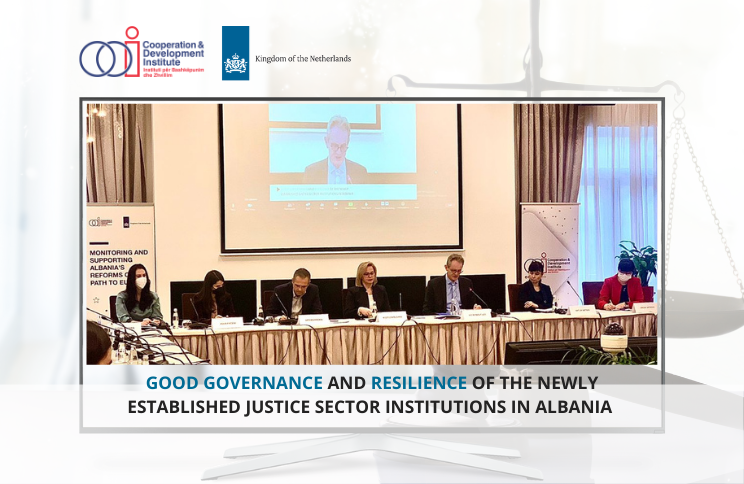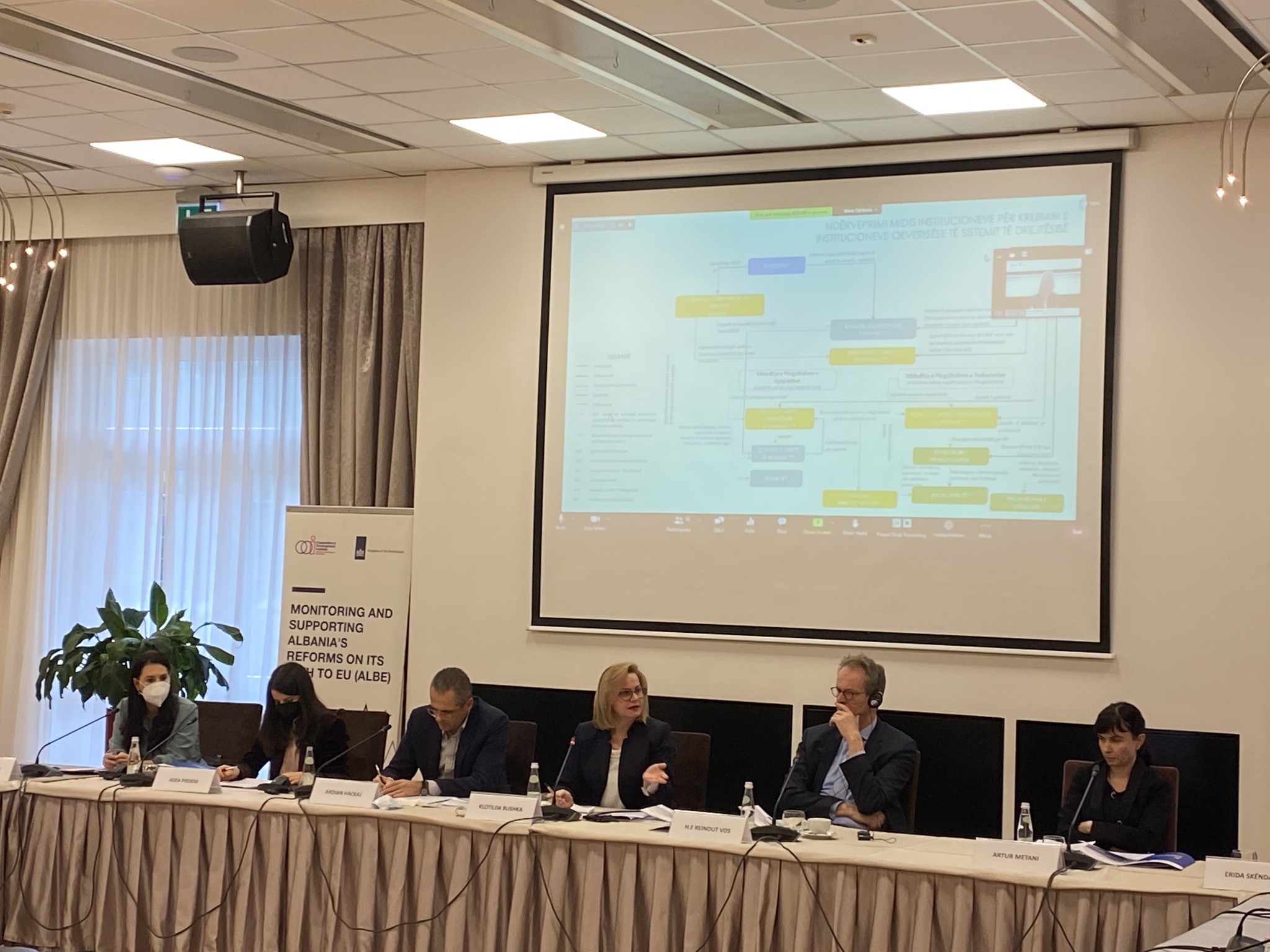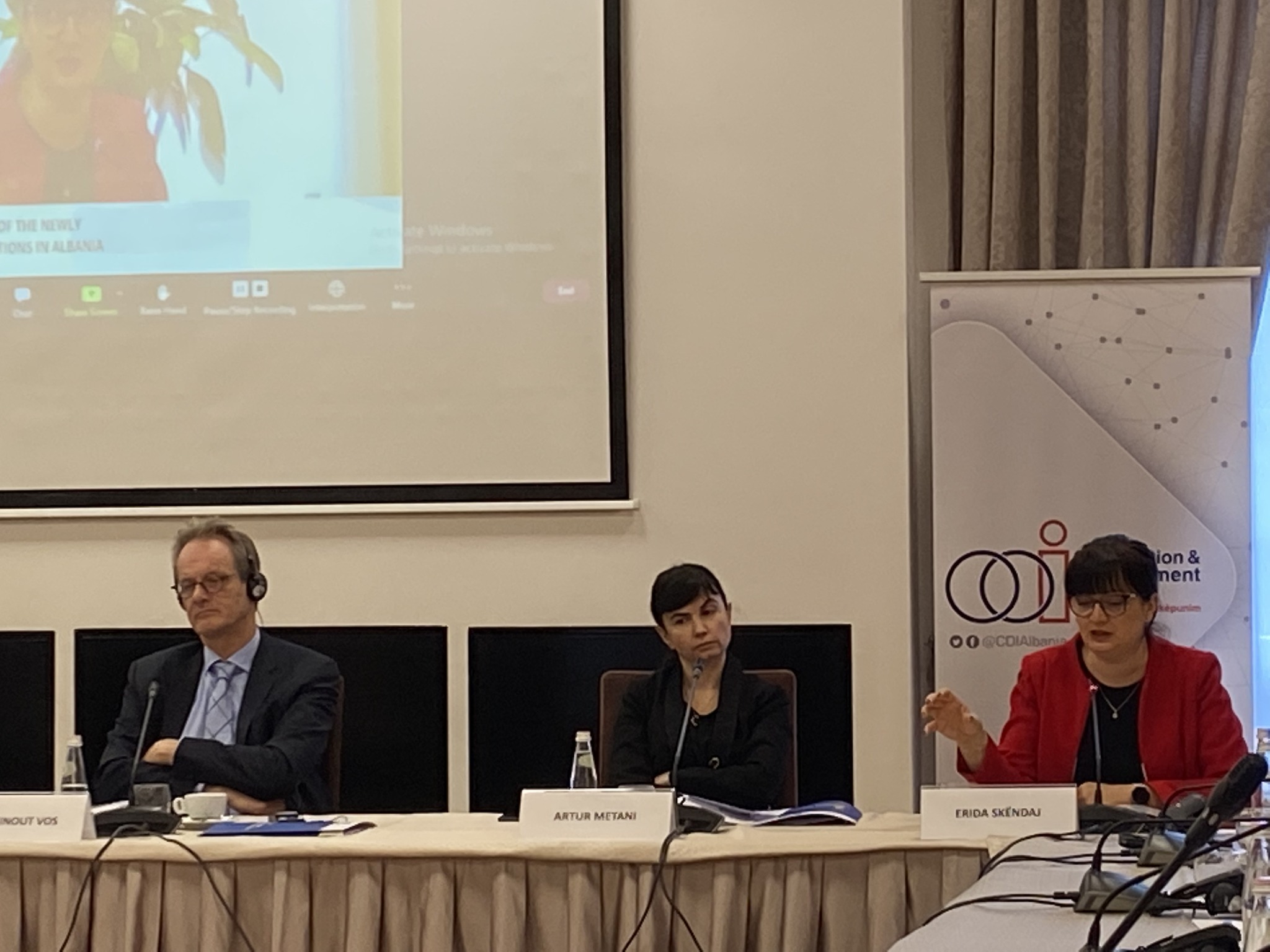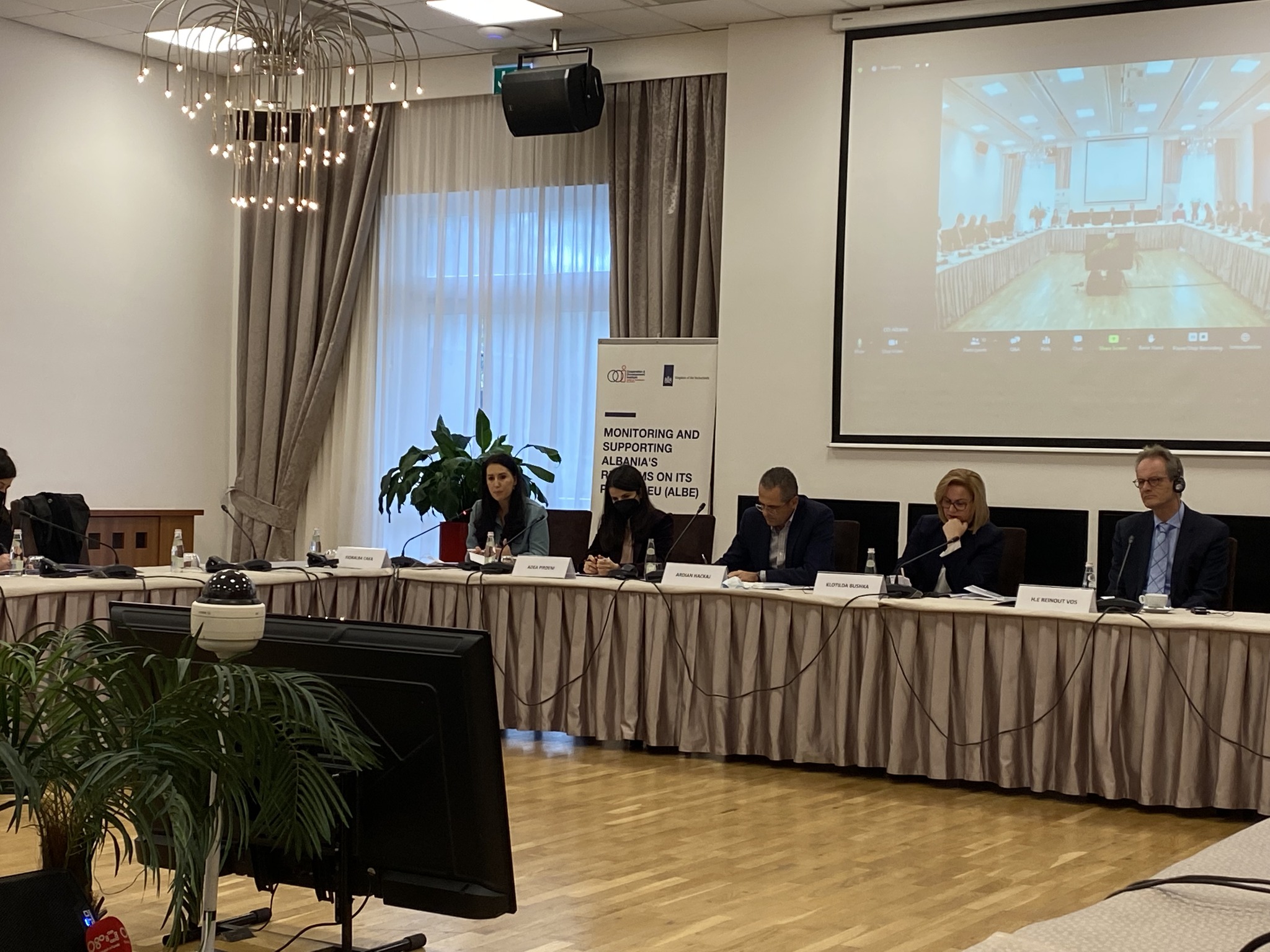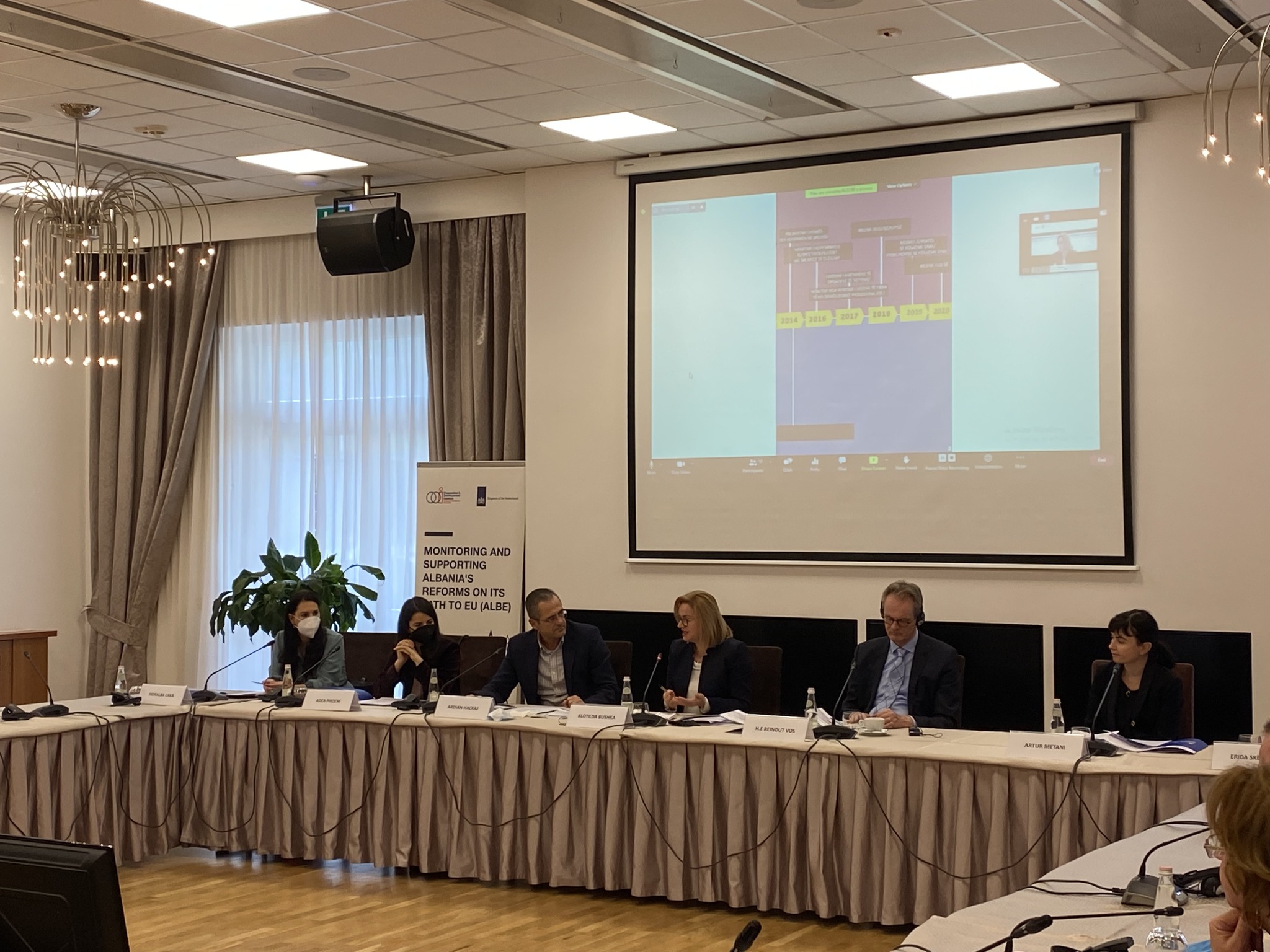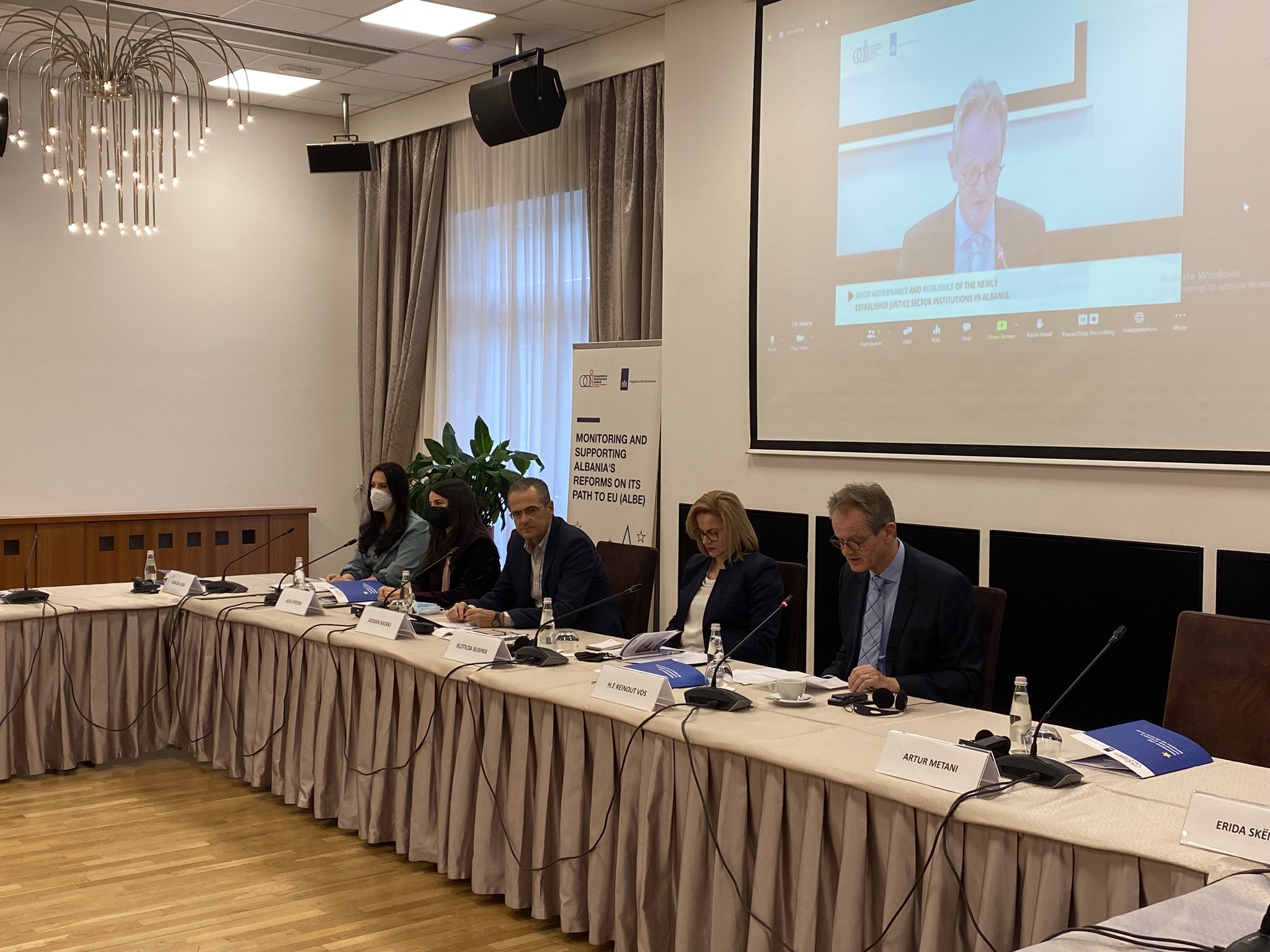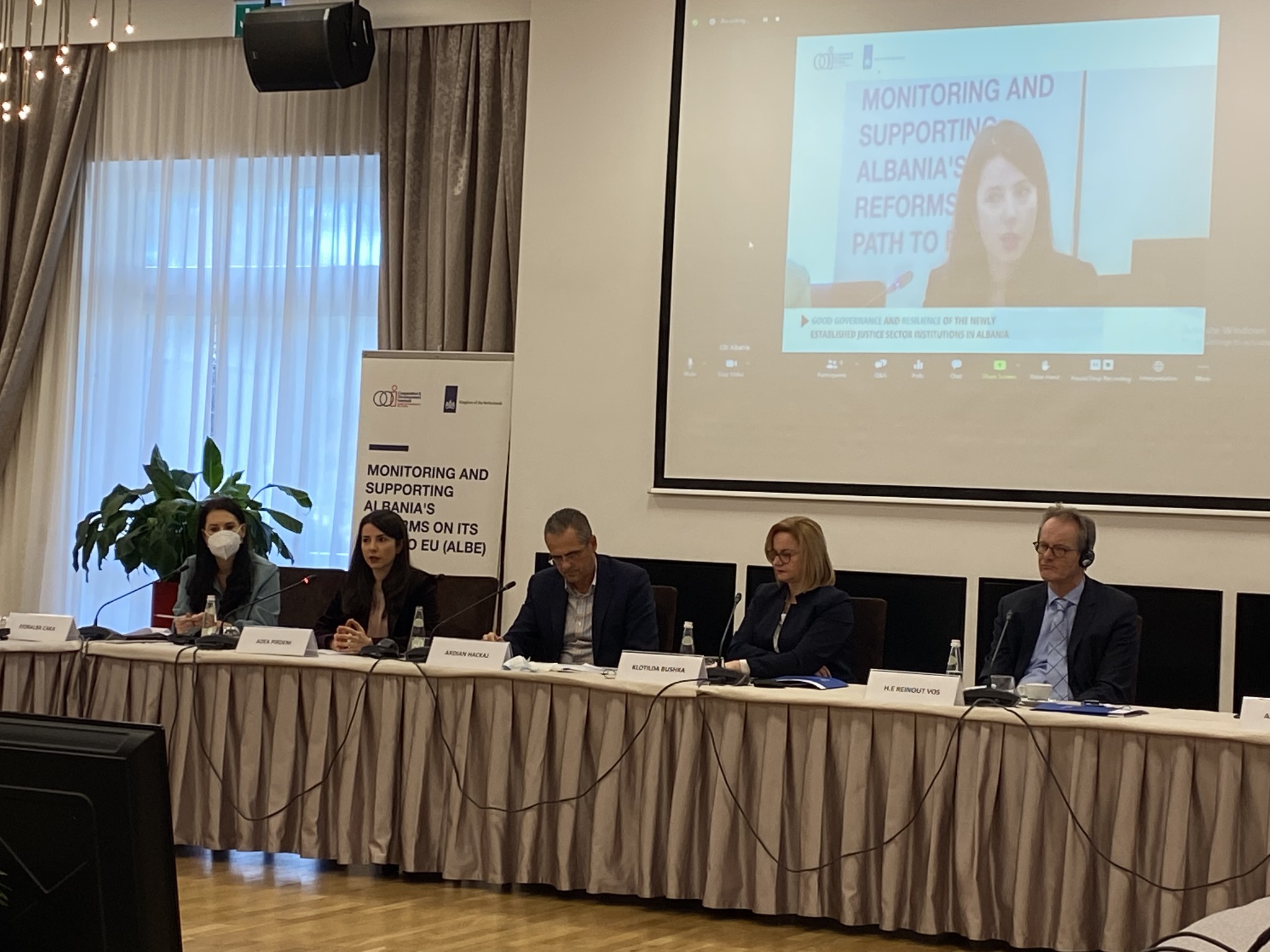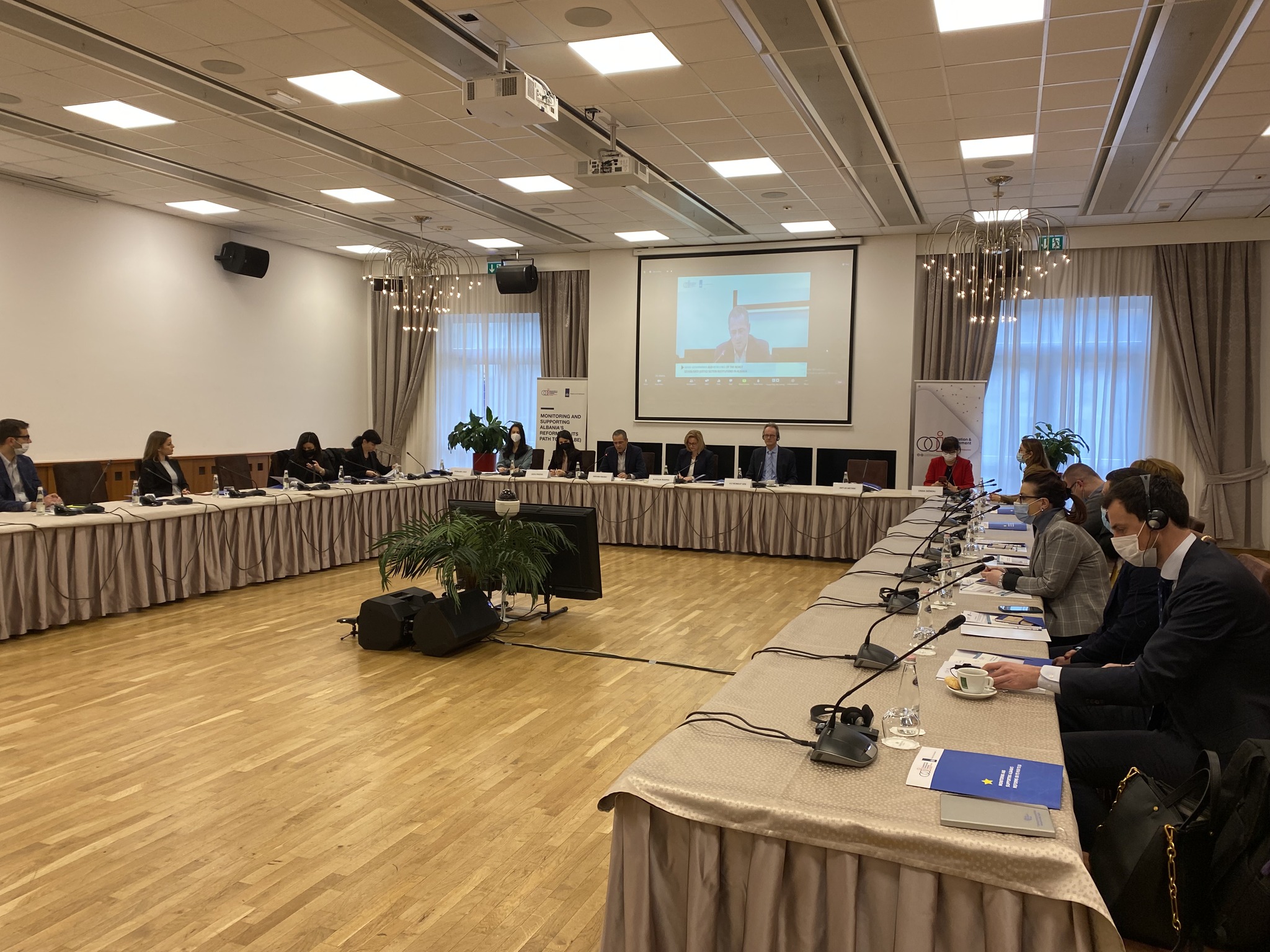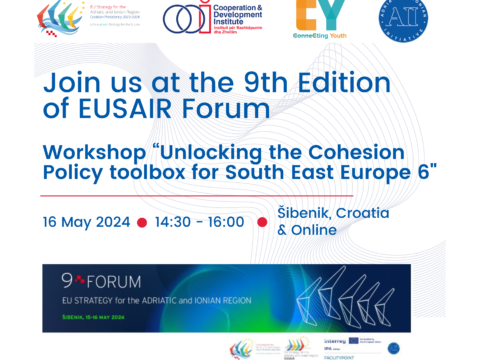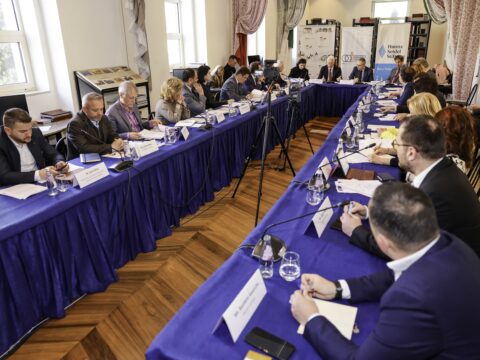20 January 2022
On 20 January 2022, Cooperation and Development Institute (CDI) organized the final event of the initiative “Preparing and Supporting Albania for the EU accession process (ALBE): Monitoring and Supporting Albania’s reforms on its path to EU”, implemented by CDI and supported by the Dutch Embassy in Tirana through its MATRA program. Since 2018, through extensive research and innovative methodologies applied, ALBE project has extensively covered the challenges of the establishment and functioning of the new justice institutions in Albania and the importance of political will and good governance in securing their resilience.
The hybrid roundtable on “Good Governance and Resilience of the Newly Established Justice Sector Institutions in Albania,” resulted a fruitful and intensive exchange of views on good governance and resilience of the newly established justice sector institutions in Albania; on the lessons learned of the justice reform in Albania for the New Enlargement Methodology; and how it may impact the delivery of IPA III financial allocation.
In this framework, this event aimed to contribute in the progress and the respective benchmarks in the Justice Reform, promote best examples, and increase the transparency of, and scrutiny and public pressure on the Albanian institutions in charge.
The event was initially addressed by Mr. Ardian Hackaj, Director of Research at CDI Albania who laid down the overall context of the Justice Reform and its interconnection with Enlargement. Mr. Hackaj added that the Albanian experience in institutional reform is a great case for decision makers in Brussels, but also in member countries during the design and preparation of the IPA III pre-accession instrument, on how we can improve it and how we can increase efficiency, and above all the impact on the ground.
H.E. Reinout Vos, Ambassador of the Kingdom of the Netherlands in Albania, also addressed the event by emphasizing the two main components of the ALBE project such as “Connectivity” and the “EU Accession Process”. Ambassador Vos highlighted the role of the civil society in these two processes as being an important interlocutor and involved in the activities throughout the implementation. “The role of CSOs and think tanks is crucial and the pertinence shave to be further exploited. Local expertise and the know-how on the local context are properly used and the willingness from multilateral actors is ensured: civil society organizations can be real change agents and at the same time valuable partners of the EU,” Ambassador Vos ended.
Ms. Fjoralba Caka, Senior Expert and Co-author of the study “Good Governance of New Justice Institutions in Albania” presented the study’s main findings while explaining the focus of the research and its novelties. “In our policy paper, we underline the important of focusing on the good governance aspect of the new justice institution because as we’re in a phase where the justice institutions and completing their set up phase, they would need to gain their own value and legitimacy,” Ms. Caka underlined. In addition, Ms. Caka mentioned also the comprehensive analysis performed in the case of the policy paper on good governance components of human resources, budget, vision and internal rules of procedures for the new justice structures. “Good governance is the new narrative and the new dialogue that the justice institutions should have” she ended.
During her intervention, Ms. Klotilda Bushka, Chair of the Committee on Legal Affairs, Public Administration and Human Rights, Parliament of Albania focused on the independence and transparency of the new justice institutions.
“When we talk about the independence of the judiciary, which is one of the main powers of the state, independence includes three essential concepts. The first is organizational independence, that is the bodies are able to organize their own structure and work. The second has to do with the functional independence that they are independent in deciding on a subject that constitutes their area of competence and the third has to do with the fact that they have the independence to have their own budgets and spend them according to the respective needs,” she explained.
Ms. Adea Pirdeni Albanian Vice-Minister of Justice added that the budgetary support that has been provided to the entire justice system, the configuration of new institutions, but also the re-dimensioning of existing institutions, is already a matter of fact that there has been considerable, multiplied budget support. Therefore, it is very important that the reform is implemented, has a political impact and will. As she further explained, the political will, in addition to supporting the work of the institutions, is in fact expressed in the financial support it gives to those institutions. “We must work together to convey an understandable language to all citizens and not only what this reform aimed at, but above all the impact that justice reform institutions have on the lives of citizens” Ms. Pirdeni ended.
While focusing on the legitimacy of the new justice institutions, Ms. Erida Skendaj, Executive Director, Albanian Helsinki Committee, added that the mechanisms for allowing the engagement of other actors in drafting a legal act depend on how transparent an institution is to include in the genesis of the drafting of an act, the civil society organizations that focus on the justice system. Ms. Skendaj emphasized that the consultations should not take place only with civil society, but when referring to the judicial maps, the consultation should be direct also with the citizens.
Ms. Deshira Pasko, Secretary General, High Inspector of Justice in Albania added the justice system has faced several challenges while establishing and making functional the new bodies, which have had a significant impact during the initial activity for the new institutions. As she explained, the existence of technical or administrative obstacles which prevent the institutions from fully exercising them to increase its efficiency as well as taking measures for this reform to the yield results. “Another challenge is the institutional building and the accommodation of its specific needs given the importance of its activity, including the need for facilities, supporting infrastructure, suitable working conditions which are prerequisites to enable and concretize the mission of its activity,” Ms. Pasko said.
To consult the agenda of the event, please click here.



